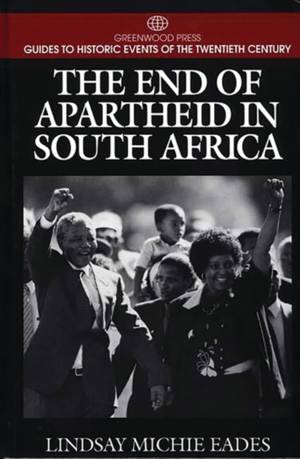
- Retrait gratuit dans votre magasin Club
- 7.000.000 titres dans notre catalogue
- Payer en toute sécurité
- Toujours un magasin près de chez vous
- Retrait gratuit dans votre magasin Club
- 7.000.000 titres dans notre catalogue
- Payer en toute sécurité
- Toujours un magasin près de chez vous
Description
The complex history and politics of South Africa form the backdrop of this insightful study of the factors that contributed to both the end of apartheid and the movement from government by racial division toward government through national unity. This study and resource examines the history, people, and politics of South Africa in the age of apartheid. Topical essays examine the divisions within South African society that led to the historic apartheid legislation initiated in 1948; each group that was defined and separated by apartheid--whites, coloreds, Indians, and Africans; how this separation put increasing pressure on the system that gave rise to organized domestic resistance that eventually led to the collapse of apartheid; the economic sanctions imposed by other nations on South Africa in retaliation for apartheid; and the new government and the challenges of a new democracy.
The analysis of how all these factors culminated in the collapse of apartheid is enhanced by lengthy biographical profiles of sixteen key personalities, including Stephen Biko, Willem deKlerk, Nelson Mandela, and Desmond Tutu. A selection of thirteen primary documents, including a letter from Nelson Mandela in exile and his speech after being released from prison, illustrates the rise and fall of apartheid and will be valuable for student research. A glossary of key terms and a timeline of important events add reference value.Spécifications
Parties prenantes
- Auteur(s) :
- Editeur:
Contenu
- Nombre de pages :
- 248
- Langue:
- Anglais
- Collection :
Caractéristiques
- EAN:
- 9780313299384
- Date de parution :
- 30-06-99
- Format:
- Livre relié
- Format numérique:
- Genaaid
- Dimensions :
- 162 mm x 241 mm
- Poids :
- 557 g







